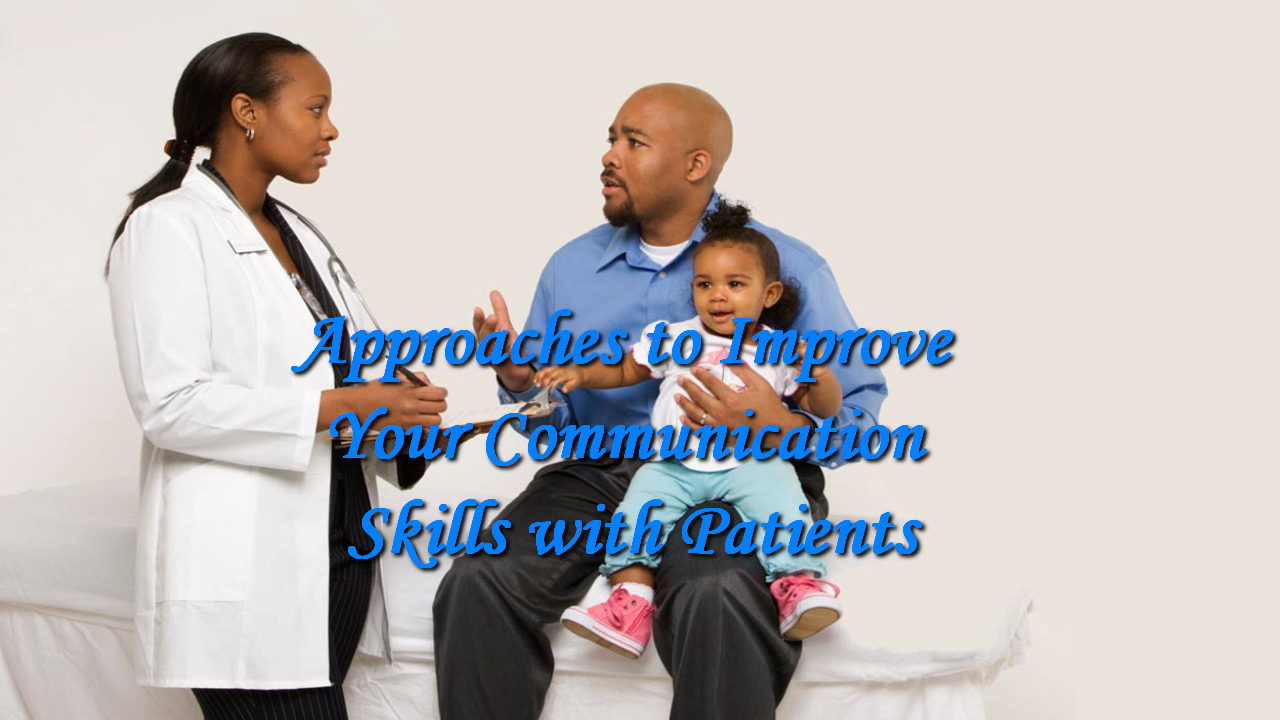Many people find it difficult to communicate with patients. As a healthcare professional, it is important to have strong communication skills with your patients. This can help to ensure that they understand their treatment plan and feel comfortable asking questions. There are a number of ways to improve your communication skills with patients. This article provides some tips on how to improve your interactions with patients.
Establish Trust

One of the most important aspects of good communication is trust. Patients need to trust that you will listen to them and take their concerns seriously. They also need to trust that you will not judge them or tell them what to do. Building trust takes time, but there are a few things you can do to help establish trust right from the start:
– Listen to your patients and take their concerns seriously.
– Do not judge or criticize your patients.
– Be honest and open with your patients.
– Be patient and take the time to listen to your patients.
– Collaborate with trusted companies (for more information, check this site)
Use Positive Body Language

Body language can be very important in communication. It can help you to build trust with your patients and show that you are listening to them.
Some tips for using positive body language:
– Sit or stand up straight.
– Make eye contact.
– Gesture with your hands.
– Smile.
Use Verbal Communication

Verbal communication is an important part of communication with patients. It helps you to convey information clearly and effectively.
Here are some tips for using verbal communication:
– Use clear and concise language.
– Avoid using medical jargon.
– Make sure your tone of voice is respectful and friendly.
– Pause occasionally to give your patients time to respond.
Use Non-Verbal Communication

Non-verbal communication can be just as important as verbal communication. It can help you to express your feelings and emotions, and it can also help to clarify what you are saying.
Some tips for using non-verbal communication:
– Use facial expressions to show your emotions.
– Use body language to show your feelings.
– Use touch to show your concern.
– Make sure your tone of voice is respectful and friendly.
Be Aware of Your Own Emotions

It’s important to be aware of your own emotions when communicating with patients. This will help you to stay calm and respectful, and it will also help you to understand your patients’ emotions.
Some tips for managing your own emotions:
– Stay calm and respectful.
– Avoid reacting emotionally to your patients.
– Understand your patients’ emotions and what they are trying to communicate.
– Take a break if you feel overwhelmed or stressed.
Seek Help if Needed
If you find that you are struggling to communicate with your patients, it’s important to seek help. There are many different types of training and support available, and it’s important to find the right type of help for you.
Some tips for seeking help:
– Talk to your supervisor or colleagues.
– Seek training or support from a communication specialist.
– Attend workshops or training sessions.
– Join a support group or networking group.
Conclusion
There are many different approaches that can be used to improve communication skills with patients. One common approach is to use a positive tone of voice. This can help to create a positive rapport with patients and make them feel more comfortable. It is also important to be aware of body language and to use positive body language to show that you are listening and interested in what the patient is saying. Finally, it is important to be patient and take the time to listen to the patient. This can help to ensure that all of the patient’s concerns are addressed.




